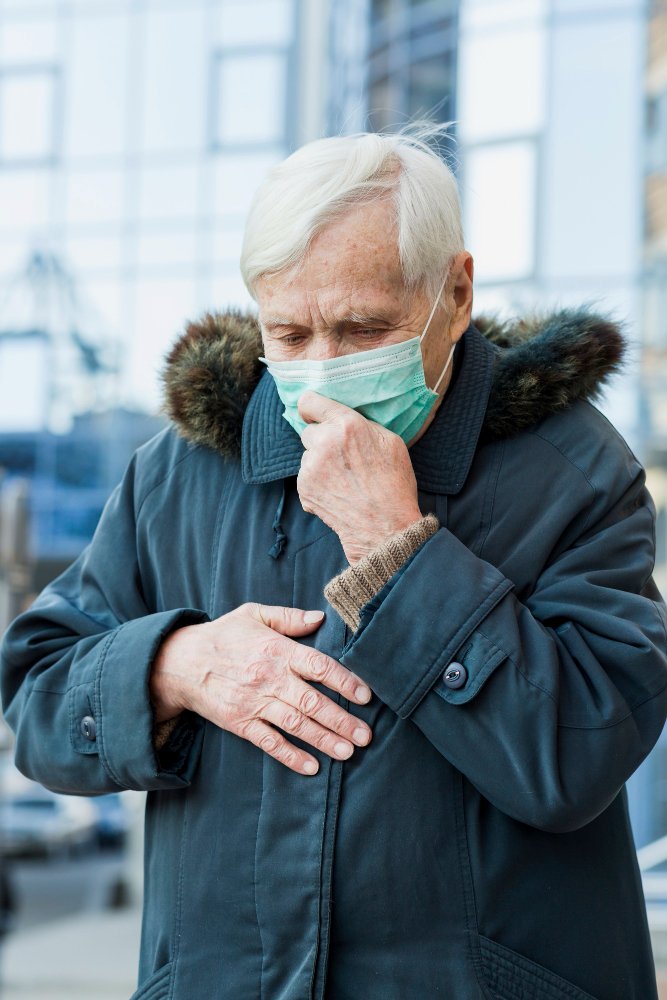Overview
Acute bronchitis is an inflammation of the bronchial tubes—the airways that carry air to your lungs—that typically develops suddenly and lasts for a short period, usually a few weeks. Most cases are triggered by viral infections, such as the common cold or influenza. Although acute bronchitis can cause uncomfortable respiratory symptoms, it usually resolves without long-term complications. However, proper care and management are essential to prevent progression or secondary infections.
What is Acute Bronchitis?
Acute bronchitis is a respiratory condition characterized by the inflammation and irritation of the bronchial tubes. This inflammation leads to an increase in mucus production and a persistent cough. It is considered “acute” because it typically lasts less than three weeks. While the condition is most commonly caused by viruses, bacteria can sometimes complicate the illness, necessitating additional treatment.
Symptoms
The symptoms of acute bronchitis often resemble those of other upper respiratory infections and can include:
- Persistent cough: Initially dry, which may later produce mucus (sputum), possibly greenish or yellow
- Wheezing or shortness of breath
- Chest discomfort or tightness, especially when coughing
- Mild fever and chills
- Fatigue and body aches
- Sore throat and nasal congestion
- Malaise
Symptoms may vary in intensity and often worsen during the night or with physical activity.
Causes
Acute bronchitis is most commonly caused by viral infections that affect the respiratory tract. Key causes include:
- Common cold viruses (e.g., rhinovirus)
- Influenza virus
- Respiratory syncytial virus (RSV)
- Occasionally, bacterial infections (secondary infections after a viral illness) may be involved
Environmental factors such as inhaling pollutants, smoke, or dust can also contribute to the development or worsening of the condition.
Risk Factors
Certain factors increase the likelihood of developing acute bronchitis:
- Viral infections: Catching a cold or influenza
- Exposure to irritants: Tobacco smoke, air pollution, workplace chemicals, or dust
- Weakened immune system: Due to chronic illnesses or immunosuppressive medications
- Underlying respiratory conditions: Such as asthma or chronic obstructive pulmonary disease (COPD)
- Seasonal factors: Increased incidence during fall and winter months
Complications
While acute bronchitis is usually self-limiting, complications can occur, particularly if there is a bacterial superinfection or if the condition is misdiagnosed. Potential complications include:
- Bacterial pneumonia: A secondary infection that may require antibiotic therapy
- Chronic bronchitis: Repeated episodes may lead to a more persistent form of bronchial inflammation
- Exacerbation of asthma or COPD: In patients with underlying respiratory conditions
- Persistent cough: Lasting several weeks even after the infection has resolved
Prevention
Preventing acute bronchitis involves minimizing exposure to respiratory viruses and other irritants. Recommendations include:
- Frequent handwashing: Use soap and water or hand sanitizer to reduce the spread of viruses
- Avoid close contact with individuals who have respiratory infections
- Cover your mouth and nose when coughing or sneezing
- Avoid tobacco smoke and other air pollutants
- Get vaccinated: Annual flu vaccination and other recommended immunizations
- Maintain a healthy lifestyle: Good nutrition, regular exercise, and adequate sleep to support immune function
Treatment Options Korea
1. Symptomatic Treatment
- Mainstay of care, as most cases are viral
- Rest, hydration, humidified air
- Cough suppressants (e.g., dextromethorphan) if cough is disruptive
- Expectorants (e.g., guaifenesin) to help loosen mucus
2. Antipyretics and Pain Relievers
- Paracetamol or ibuprofen for fever and chest discomfort
- Widely available over-the-counter or by prescription
3. Inhalers (if needed)
- Bronchodilators (e.g., salbutamol) prescribed for wheezing or reactive airway symptoms
- Short-term use guided by physician
4. Antibiotics (Only If Bacterial)
- Usually not recommended unless signs of bacterial infection or high-risk patients
- May be used in older adults, smokers, or patients with chronic lung conditions
5. Avoidance of Irritants
- No smoking and avoid polluted air
- Masks recommended during high fine dust (미세먼지) days in Korea
6. Medical Evaluation for Complications
- Further tests or chest X-ray if:
- Symptoms persist >3 weeks
- Fever is high or worsening
- Underlying lung disease suspected













